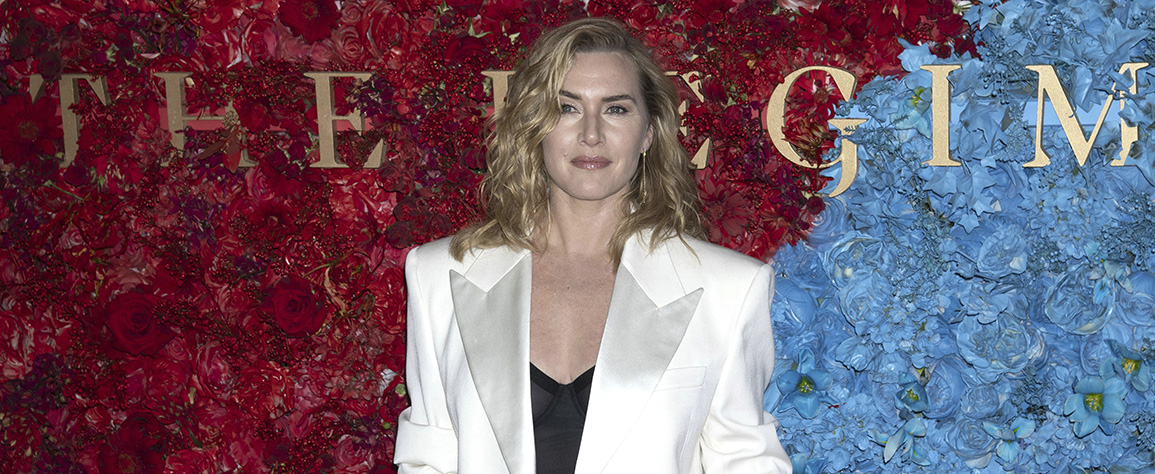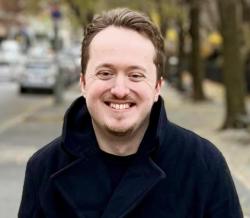Dark political comedy is an underrated genre, as it enables us to see both the horror and the humor in a given political situation. Politicians often behave in ridiculous ways, but because of their incredible power, their actions have serious real-world consequences. When dark comedy is done well, as in Stanley Kubrick’s masterpiece Dr. Strangelove, it can become a cultural touchstone that helps us name the things that ail our political class.
Aside from Armando Iannucci (The Thick of It, In the Loop, The Death of Stalin, and Veep), the contemporary writer who has consistently tried his hand at dark political comedy is Adam McKay, with movies like The Big Short, Vice, and Don’t Look Up. Yet because McKay reduces all problems in politics to “The people I don’t like are stupid or evil,” his satire more often than not falls flat.
Enter The Regime. The HBO miniseries stars Oscar-winner Kate Winslet as Elena Vernham, the tyrannical ruler of an unnamed Central European nation trying to keep power while protecting her country from threats within and without. Chaos only grows when she brings on a brutal soldier known as “The Butcher” to be her personal aid and an attraction grows between them.
This series seems tailor-made for a searing comedic commentary on modern geopolitics. The idea of a female foreign dictator reflects both our growing concerns about tyranny (foreign and domestic) and the steady rise of women to positions of high power. Yet it also cuts against our expectations of totalitarianism as particularly masculine. Hence the potential for humor.
When the show leans into its social commentary, it’s compelling. We see what it’s like to be a small country dwarfed by much bigger ones like the United States and China, and how that fuels a desire to feel powerful in its own right. When an American senator demeans Elena because she feels like she can, we almost root for the dictator to turn the tables—which she does. The series also repeatedly contrasts her claims to “love” her people as their “mother” with her tendency to slaughter them en masse, a contradiction that is ripe for a psychological as well as a politician examination that, unfortunately, never materializes.
The best part of the show is easily Winslet. Her character is a mess of paradoxes, and Winslet manages to wrangle them all into a mesmerizing whole. She’s both vulnerable and commanding, Machiavellian and idealistic. Winslet convinces us that Elena is both deeply insecure about her ability to live up to her late father’s legacy, yet almost delusionally certain of her greatness. The rest of the cast, however, do the best they can but aren’t given much to work with in terms of character development. Matthias Schoenaerts is utterly committed to his role as a lovesick savage. Stanley Townsend is calmly dignified as a corrupt businessman adviser and antagonist. Hugh Grant is incredibly entertaining in a woefully small role as the deposed ruler of the country—cheerfully unfazed by everyone’s comical eccentricities.
But The Regime get stuck on one note. The writers make the same jokes juxtaposing Elena’s female identity and stereotypically male despotic habits without further enlargement. They touch on the dynamics of a small dictatorship taking on the U.S. but then pivot to a long, drawn-out, cartoonish romantic subplot about Elena and The Butcher. The Regime wants us to empathize with or at least try to understand Elena, but her decisions are so baffling, her inner life so bizarre—like when her father’s animated corpse speaks to her—that we find ourselves empathizing more with her fearful underlings.
In The Death of Stalin, for example, each step of Nikita Khrushchev’s and Lavrenti Beria’s competitive rise to replace Stalin is increasingly both horrifying and absurd, so each plot beat increases the terror and comedy at the same time. But in The Regime, the drama and nonsense only interrupt each other, so neither the terror nor the absurdity gain momentum.
The Regime’s portrayal of a woman in power is also confused. Many films have told such stories very well, from almost any angle you can imagine—feminist, anti-feminist, and everything in between. Some, like The Devil Wears Prada, argue that women face a double standard: Meryl Streep’s Miranda Priestly would be admired if she were a man in her same position exhibiting the same behavior. Pre-feminist films like Woman of the Year put Katharine Hepburn’s Tess Harding in power just to show why women shouldn’t be in power. Movies like Tár make it a non-issue, treating the sex of Cate Blanchett’s Lydia Tár as irrelevant to how powerful people abuse that power.
But The Regime doesn’t do any of those things. It is, in many ways, a profoundly anti-feminist take. While both feminists and anti-feminists may insist that women do act differently when given power—positively in the eyes of the former and negatively in the eyes of the latter—The Regime never tries to give us a coherent take on what politics look like when a woman has power, let alone all-consuming power as in a dictatorship.
As an example: journalist Louise Perry and behavior scientist Corey Clark discussed on Perry’s podcast how, because men and women are different on average, the rise of women in public life changes that life drastically. Since women value safety—physical and emotional—more than men, we get a rise in the enforcement of emotional safety over truth through social exclusion via things like “trigger warnings” and “cancel culture.” It’s easy to draw parallels between this and Elena’s forcing her underlings to lie constantly to protect her feelings. But The Regime simply presents but never examines, and so makes observations about Elena’s behavior feel more sexist than incisive or insightful.
So how did The Regime turn out so wrong? Did its creators just try to do too much? Perhaps, but it’s hard not to see a pattern here. Whether it’s Napoleon, Civil War, Shogun, or Horizon, even big-budget efforts lack an ability to find a coherent meaning behind their characters’ actions and life stories. Why was Napoleon so ambitious? What was Civil War saying about war? What Western values did John Blackthorne abandon by adopting Eastern ones? When it comes to establishing themes or character motivations that will add weight or unity to the events of a story, so many modern efforts fall flat.
Dr. Jonathan Haidt in his book The Anxious Generation suggests a possible explanation for this phenomenon. Haidt argues that technology—particularly, but not limited to, social media—has devastated our society’s ability to formulate a coherent narrative for our lives. We no longer live in the same towns, go to the same churches, or even watch the same movies anymore. We now live in isolation, watching our own 15-second TikToks that offer no narrative at all. We experience mere moments, not stories. We have individual strands, but no threads. Brett McCracken points out that’s why movies like Barbie can break their own story rules with no consequences: because nobody cares about internal coherence in fiction anymore—we’re not trained to expect it even in our own lives.
That’s a society ripe for dictatorship because all dictators gain power by telling a story about themselves that’s a lie. But you can only get away with a lie if you can’t check it against the truth. And if you can’t see how certain truth claims contradict other truth claims within a given narrative, you won’t be able to detect when they’re lying.
The Regime has some excellent performances and a concept with a lot of potential. Hopefully, other filmmakers will make use of the political dark comedy better in upcoming years. The genre at its best creates an insightful framework in which to understand our politics. And Lord knows we need it now as much as ever.

